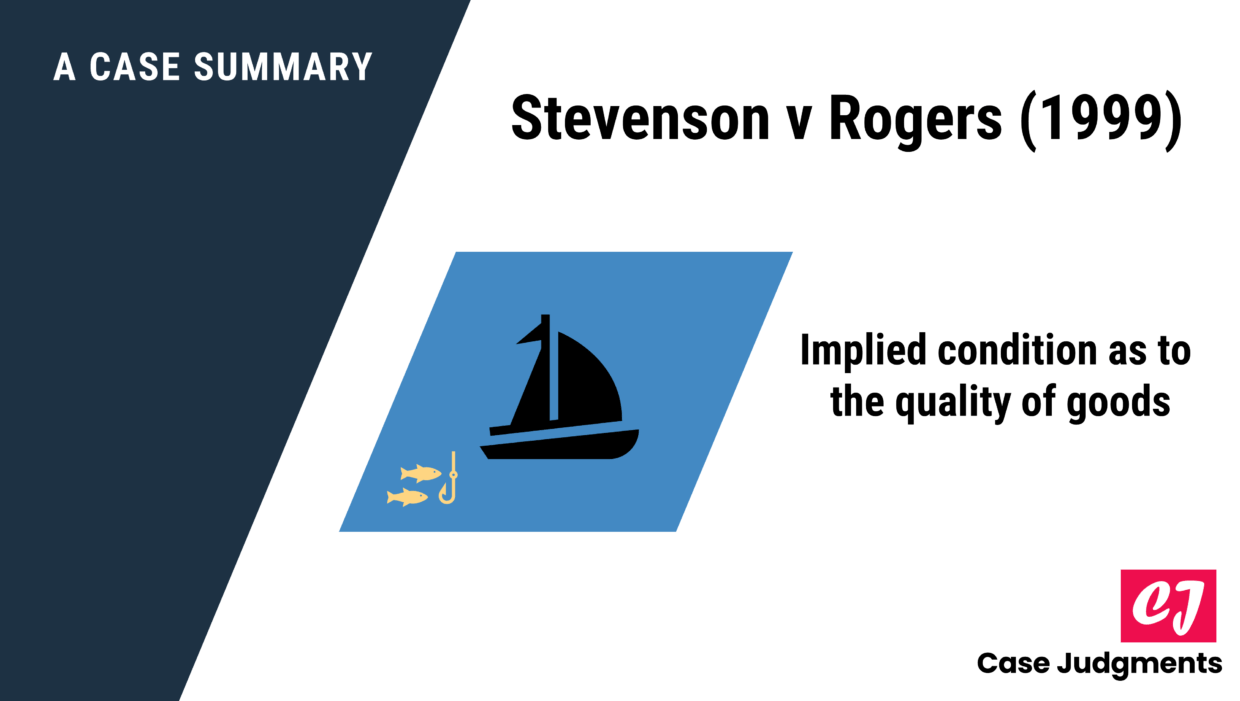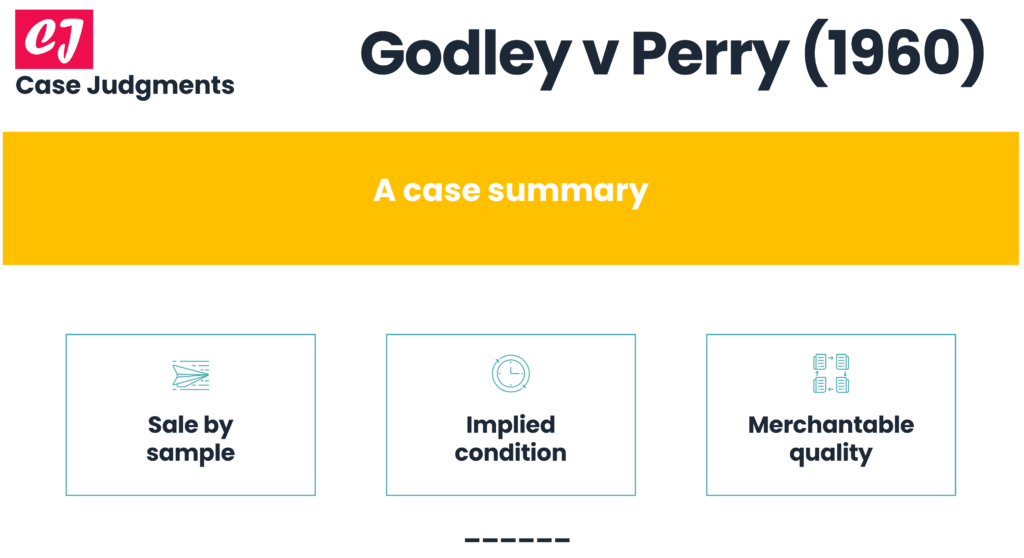
Stevenson v Rogers (1999): A Case Summary
Case name & citation: Stevenson v Rogers (1999) 1 All ER 613
Court and jurisdiction: Court of Appeal, England and Wales
Year of the case: 1999
Area of law: Implied condition as to the quality of goods
What is the case about?
Stevenson v Rogers (1999) talks about the liability of a seller to ensure that the goods supplied are of satisfactory quality.
In this case, the English Court of Appeal reviewed the meaning of the words “a seller selling goods in the course of a business” in Section 14.
Facts of the case (Stevenson v Rogers)
The seller, a fisherman with more than 20 years of experience in the business, listed his trawler, Jelle, on the market since he was replacing it with a brand-new boat. Due to Jelle’s failure to meet the standard of satisfactory quality, the buyer filed a lawsuit under Section 14(2) of the Sale of Goods Act of 1979.
The seller claimed that Section 14(2) did not apply because this was a private sale. He didn’t deal in used trawlers; that was not his line of work. He contended that he did not engage in the business of purchasing and selling fishing boats; rather, capturing fish and selling them was his primary source of income.
Issue raised
Was the seller liable for breach of Section 14?
Judgment of the Court in Stevenson v Rogers
The Court of Appeal disagreed with the seller’s contention, recognizing that because this sale was closely related to the seller’s commercial activities, it should be classified as a business sale covered by Section 14(2).
Given that it appeared that the requirement of satisfactory quality had been violated, the buyer had the right to question the seller under Section 14.
Therefore, it was held that the sale was made in the normal course of business and the defendant was responsible for ensuring that the boat was of satisfactory quality.
Governing section behind the decision
Section 14 is an implicit term in a contract of sale that most sellers are likely to violate. A seller of goods can violate Section 14 in a variety of ways. If the items delivered are not of adequate quality or are not suited for the customer’s needs and purpose, the buyer may file a claim against the seller.
Only if the seller is selling the goods in the course of his business will the protection given to buyers by Section 14 be applicable. As a result, Section 14 will not provide protection to a buyer who purchases products from a private vendor. Consequently, the maxim of caveat emptor, which means “let the buyer beware,” is the best way to describe the general norm for private sales.
Or, to put it another way, the law does not exist to safeguard a buyer in a private sale from the repercussions of striking a bad deal due to his own foolishness or his inability to adequately question the seller regarding the suitability or condition of the goods.
Who will be covered by Section 14?
The manufacturers, wholesalers, retailers, and dealers in new or used goods are the only businesses that are likely to be affected by the implied conditions contained in Section 14. In addition, a commercial vendor will not be able to excuse himself from complying with the requirements of Section 14 by claiming that he does not usually supply or deal in the type of goods in question.
Therefore, if the buyer ordered a specific brand of goods from a business seller who had never sold these before, he would have a claim against the seller under Section 14 if the goods were not fit for their purpose or were defective in some way. In this scenario, the seller would be held liable for the buyer’s damages.
The seller’s arguments that the goods delivered were not in the normal course of his business would likely be disregarded by the Courts as irrelevant. The case of Stevenson v Rogers (1999) is a good example of this situation. The sale of the trawler by the seller was not considered to be a private sale and it was held to be a sale in the normal course of business.
List of references:
- https://www.hoddereducation.co.uk/media/Documents/Scottish/QR-4-1.pdf
- http://www.e-lawresources.co.uk/Stevenson-v-Rogers.php
You might also like:
More from sale of goods:

